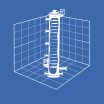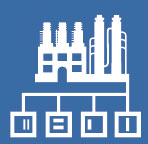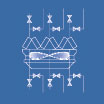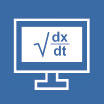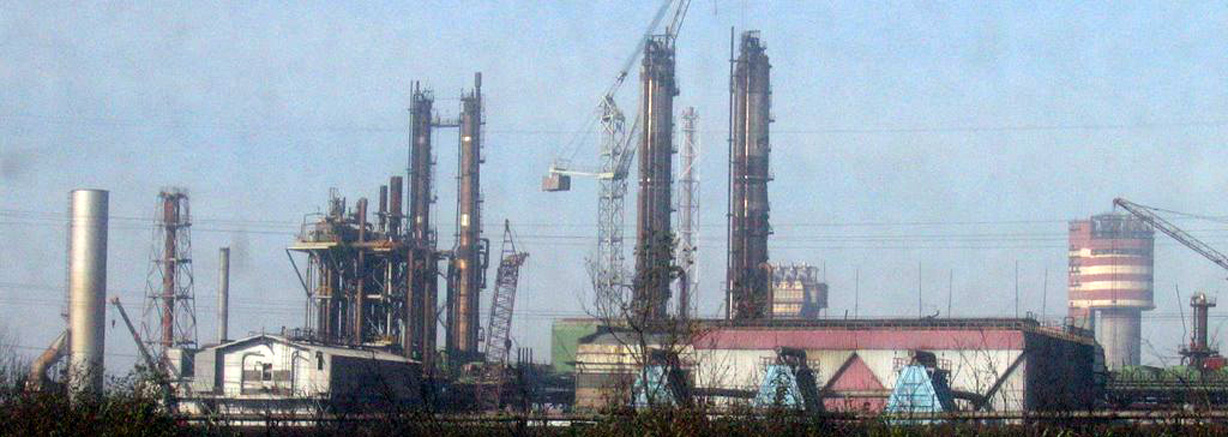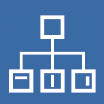Operator training simulator (OTS)
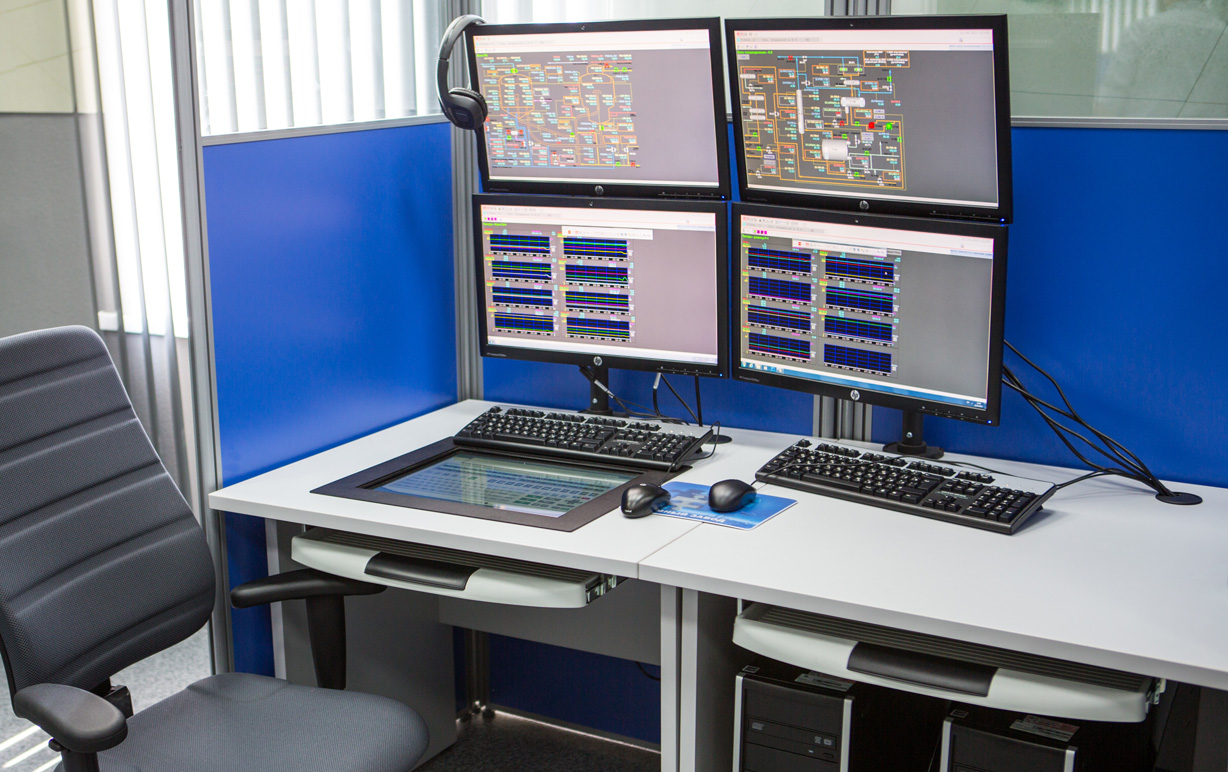
One of the most important factors in the safe and efficient operation of oil and gas, oil refining and petrochemical industries is the use of highly qualified specialists with the necessary skills to control the technological process in any conditions.
For these purposes, the T-Soft company has developed computer training complexes that help personnel to work out practical skills in managing a technological object in conditions as close as possible to real ones.
The practice of introducing T-Soft Operator Training Simulator (OTS) at the leading enterprises of the industry has demonstrated the maximum correspondence of T-Soft solutions to the needs of customers.
For more than 15 years, T-Soft has been developing and improving technologies for creating OTS's, which ensure the development of stable and correct skills by operating personnel in regular, emergency and emergency situations.
The world practice of the implementation of training complexes shows that with constant training of personnel at OTS, the probability of making mistakes by operators is significantly reduced, which contributes to a comprehensive increase in the safety of the facility, increases production efficiency and, as a result, increases the profitability of the enterprise as a whole.
Operator training simulator are designed to solve the following tasks
- practicing the skills of safe control of the installation in the modes of start-up, shutdown, in the event of normal, abnormal and emergency situations;
- mastering the technological process by novice operators;
- detailed analysis of technological processes by operators and engineers and technicians;
- study of the influence of various parameters and control actions on the qualitative and quantitative indicators of products.
Advantages of T-Soft training complexes
- Maximum adaptation of the parameters of mathematical models for a specific production;
- an unprecedented set of failures and the ability to unlimitedly expand didactic properties, a bank of failures and emergencies;
- full imitation of DCS and ESD with support for original configuration files;
- developed system of modeling and presentation of control objects located “in place” (technological scheme, panorama, 3D);
- the possibility of full automated control and assessment of personnel.
The structure of the OTS T-Soft
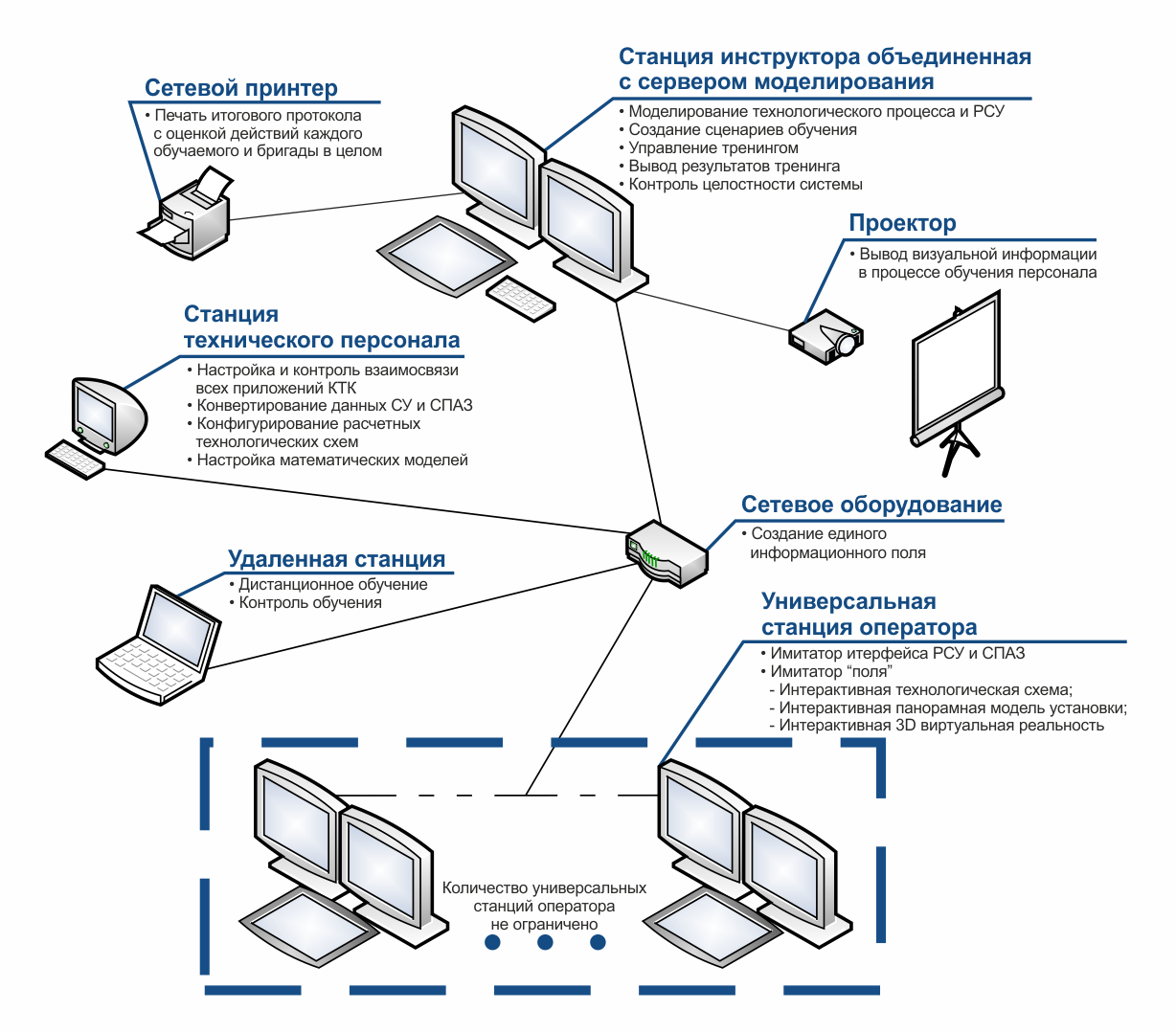
Production tasks solved with the help of OTS
- debugging of changes in control system algorithms;
- elaboration of solutions within the framework of the implementation of an improved management system;
- verification and debugging of automated procedures (cold and hot start, transfer of the unit from one operating mode to another, emergency stop, etc.);
- development of recommendations for improving technological process control.
Comprehensive staff training
The main requirement for the training complex is that the skills formed on the simulator, in terms of content and structure, must correspond to operations in production activities, and the distribution of areas of responsibility and duties must be the same as at a real facility.
The T-Soft simulators take into account all the methodological and psychophysical aspects of the training of operators of hazardous and technically complex industries. The key ones are:
- The number, composition and interface of workplaces on the simulator must correspond to workplaces in production.
- Modeling should be realistic and carried out in the scope of the entire technological scheme of production. Actions to control all systems, including DCS, compressors, pumps and other systems, must correspond to the real ones in terms of logic, control features and other parameters.
- Each operator must provide access to all control objects within the area of his responsibility, taking into account the possible redistribution of responsibilities in various regular, emergency and emergency situations.
- The set of exercises in the simulator should cover all possible failures, normal and emergency situations.
- Local failures and emergencies should be practiced individually or as part of a team. Emergency training for widespread emergencies should be conducted as part of a team. The responsibilities of operators on the simulator are always distributed in the same way as on a real site.
- Operator's actions to localize emergency situations are subject to mandatory error analysis. For complex technological objects, the operational analysis of the actions of the trained personnel is a laborious task and is not possible without the use of automated control. In this regard, the means of automated control and assessment of the actions of each student individually and of the entire team as a whole should be provided. The results of the exercises should be recorded in the protocols.
Calculation of the cost of implementation
The cost of the T-Soft OTS and the T-Sim technological process modeling platform is calculated individually.
The cost depends on the following factors:
- the complexity and volume of the modeled object;
- manufacturer and version of DCS, ESD and local control systems;
- method of implementation of the "field" operator interface.
You can get more detailed information by contacting us by phone. +7 (812) 66-55-105. or by writing to us on our mail office@T-Soft.ru
Portfolio
Complex simulators
Automated training system
Advanced process control systems
Complex simulator
Automated training system
Complex simulators
Automated training system
Useful Materials
Video
